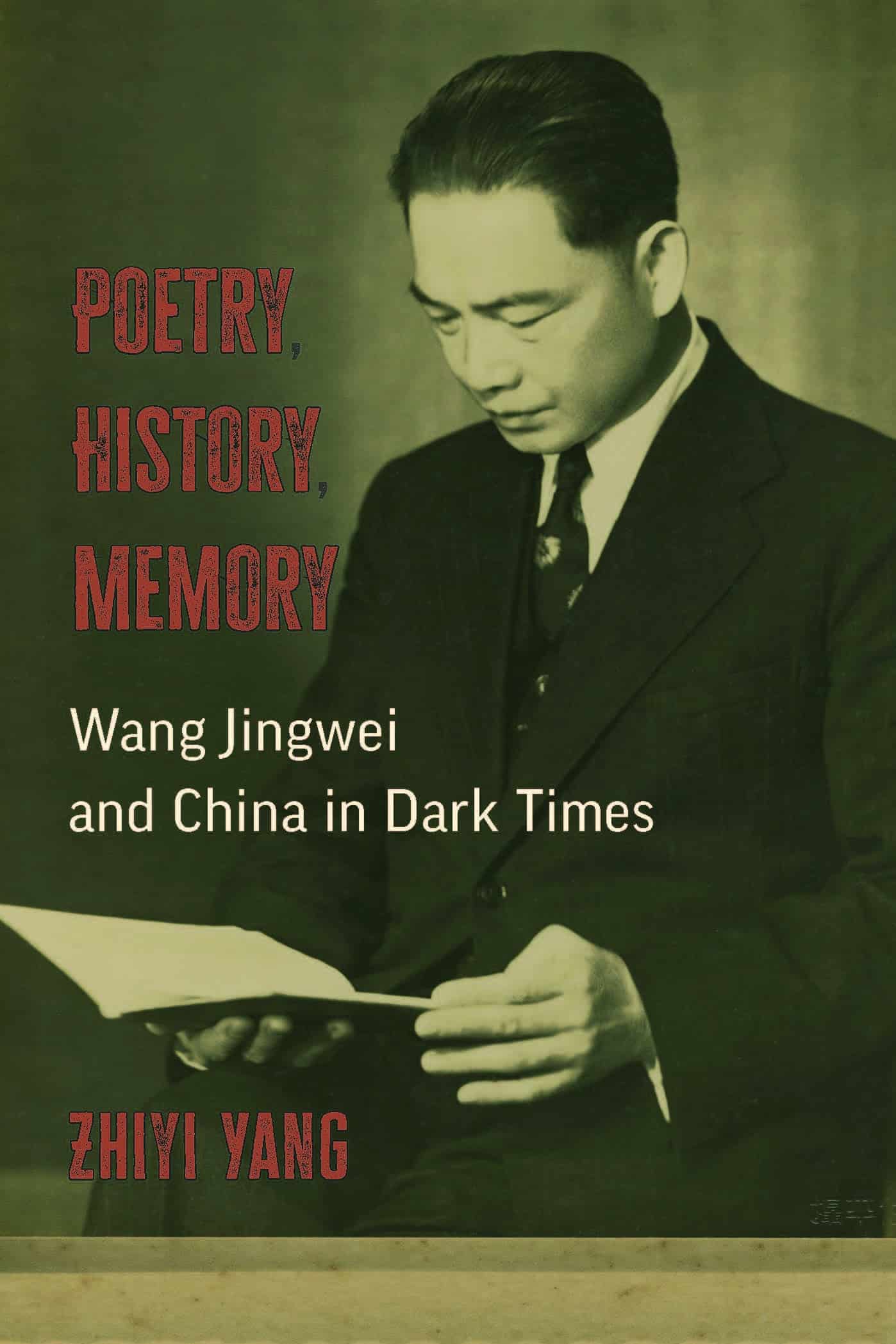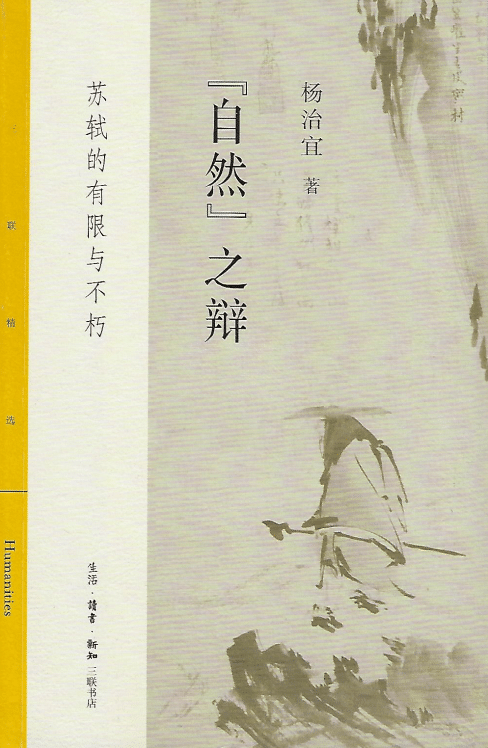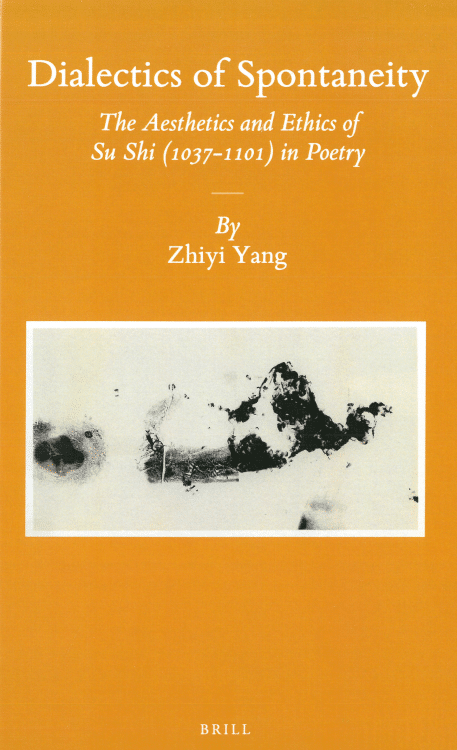Poetry, History, Memory:
Wang Jingwei and China in Dark Times
Ann Arbor: University of Michigan Press, November 2023
Order in Print:
University of Michigan Press | Amazon.de*
繁體中文版《詩歌·歷史·記憶:汪精衛與中國的黑暗時代》(臺北:聯經出版,預計出版時間2024)
Review by Haihong Yang, in Modern Chinese Literature and Culture (April 13, 2024)
This book investigates the complex of poetry, history, and memory through the case of Wang Jingwei, a poet, politician, and the most controversial figure in modern Chinese history. Wang Jingwei, “patriot” and “traitor,” has always been a figure of major academic and popular interest, but his story has never been properly told, let alone critically investigated. The significance of his story is evident from an ongoing war in memory. Mainland China to date prohibits serious academic research on wartime collaboration in general and on Wang Jingwei in particular. The polemical stakes on Wang’s legacy as a “traitor” or a “martyr” are high, as the answer will affect how China remembers its role in the hagiography of an Anti-Fascist World War, its unfolding global memory culture having fundamentally shaped world politics, international justice, concepts of sovereignty, and national identity. At this critical juncture, when the memory of WWII is fading from living memory and transforming into historical memory transmitted primarily through institutions, a reexamination of Wang, his role, and his impact on WWII memory culture is overdue. Furthermore, as a literary scholar, I find the exegetical questions posed by Wang’s poetry fascinating. If we stop reading poetry as revelation, how can we admit it into historiography? How is it related to the transmission as well as the recreation of historical and cultural memories? In this book, I argue that the ambivalences and nuances in Wang’s poetry are to be treated as possessing a particular kind of historiographic power, which helps write a history with human temperature.


「自然」之辯:蘇軾的有限與不朽
Beijing: Sanlian chubanshe 三聯出版社. 1st print: October 2018; 2nd print: August 2019
[Web Link]
這是Dialectics of Spontaneity (Leiden: Brill, 2015)一書的中文版,由我本人翻譯改寫。為了適應中文的閱讀期待及文化語境,我對英文版做了大大小小的調整,並且增加了整整一章(第三章)。感謝三聯出版社將之列入「學術精選」系列,有機會與廣泛的中文讀者見面。
Dialectics of Spontaneity: The Aesthetics and Ethics of Su Shi (1037-1101)
Leiden: Brill. Print: July 2015; Ebook: May 2020.
Su Shi is a household name in China and is broadly known to Western readers familiar with premodern East Asian culture. He has influenced Chinese, Japanese, and Korean poetry, art, and aesthetics, aside from Confucianism and Chan/Zen Buddhism. Given his immense influence, he is one of the few Chinese poets who have attracted particular attention in English scholarship. Given the extensive extant scholarship on Su Shi, my book aims to bring Chinese studies into dialogues with other academic fields by constructing a system of hermeneutics and engaging in contemporary discussions on aesthetics and ethics. My book has been inspired by a broad range of disciplines, from German aesthetics to Asian religions. Yet ultimately, my investigation is based on the close reading of Su Shi’s writing.
The Introduction contextualizes the issue of “spontaneous art” as well as its related notion “artistic genius” in the history of Western and Chinese aesthetics; it further points to the conventional relation between aesthetics and ethics. My investigation shows the oxymoronic nature of the notion “spontaneous art,” yet this notion nevertheless has acquired exegetical power to explain artistic excellence. Su Shi was often seen as a spontaneous genius, even though, as my discussion shows, this received portrait might have grown out of a palimpsest of reception history.
Following the Introduction, each of the five chapters examines one aspect related to aesthetic or ethical spontaneity. The “aesthetics chapters” consist of Chapters 1 to 3, with the first two chapters on the aesthetics of art and Chapter 3 on nature aesthetics. On the former issue, Chapter 1 deals with the question of the artist, and Chapter 2, that of the artwork. If the theoretical paradigm of these “aesthetics chapters” appears atemporal, the “ethics chapters” locate the discussion in historical time and place. They explore Su Shi’s attempts at the transformation of the self and of the physical body to completely “return into nature,” a return conditioned by cultural paradigms and liturgies. In all these explorations, the aesthetic and ethical spontaneity is found to be in the “Middle Way”: in the unimpeded resignation to necessity on the road toward absolute freedom and enlightenment.
